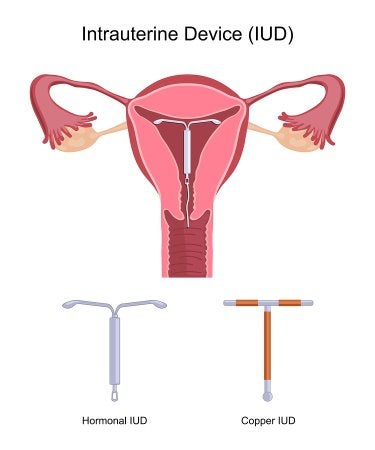-
Staying Comfortable During Your Pregnancy Termination
When you go to the clinic for a pregnancy termination procedure, the gynecologist will provide pain management care to keep you comfortable. Discuss any previous reactions you may have had to pain medicine in the past, and let your doctor know which medications you’re already taking. To keep you relaxed and comfortable during a second trimester abortion, a certified nurse anesthetist will administer anesthesia.

You can choose which type of anesthesia you wish to have. You may have local anesthesia, which only numbs the immediate area. Conscious sedation will relax your whole body, but it won’t make you fall asleep. General anesthesia is the deepest level, as it allows you to sleep through the procedure. You’ll be closely monitored for safety the entire time you’re asleep.
There are several options for pain management when you have an abortion in Washington, D.C. Call Washington Surgi-Clinic at (202) 659-9403 to request a consult for pregnancy termination.
-
When to Talk to Your Doctor About Period Pains
Most women experience mild, fleeting menstrual cramps every month. If you’re having severe pain that isn’t manageable with over-the-counter medications, it’s time to see your gynecologist. You should also see your doctor if your period lasts any longer than seven days, or if bleeding is heavy enough to require a new tampon or sanitary pad every hour. Several treatment options are available, including hormonal birth control pills.
When you watch this video, you’ll meet Donna. For years, Donna lived with excruciating menstrual pain and abnormally heavy bleeding. She was finally diagnosed with uterine fibroids, endometriosis, and adenomyosis. After having a hysterectomy, Donna feels like a new woman.
Women who have gynecology concerns and live near Washington, D.C. will find warm, trusted healthcare providers at Washington Surgi-Clinic. Call (202) 659-9403 to request our next available appointment with a gynecologist .
-
What to Consider Before Choosing the IUD for Birth Control
Intrauterine devices (IUDs) are a birth control method that’s become quite popular lately. Some women decide it’s the right choice for them because it’s low-maintenance—there’s no need to take a monthly trip to the pharmacy, or to remember to take a pill every day. However, an IUD isn’t necessarily right for every woman. Talk to a gynecologist about your options and your health history before deciding.

There are several IUDs.
Today, women have more IUD options available in the U.S. than in previous years. There are now at least four approved hormonal IUDs, plus one non-hormonal IUD. The hormonal IUDs work because of the time-controlled release of progestin, which is a synthetic version of progesterone—a hormone naturally made by the body. Depending on the brand of IUD you choose, the hormonal options can remain in place and stay effective for three to six years. The non-hormonal IUD is made with a little copper, which prevents sperm from fertilizing an egg. The copper IUD can remain effective for up to 12 years.
IUD insertion can be unpleasant.
Your gynecologist must insert the IUD—it cannot be inserted or removed at home. The doctor will make you as comfortable as possible during the insertion process, however, you should expect some discomfort. Initially, the insertion will feel much like a typical pelvic exam and pap test. The gynecologist will insert a speculum, followed by a long, skinny tube that holds the IUD. This must be inserted through the cervix and into the uterus. Although the experience may not be pleasant, it should be over within just a few minutes.
The adjustment period can last a couple of months.
Once your body has adjusted to the IUD’s presence, you shouldn’t notice anything different, except that you might eventually not have your period anymore. However, during the adjustment process, you may feel bloated, crampy, and occasionally nauseated.
At Washington Surgi-Clinic , we value and respect the unique needs of every woman we care for. Call (202) 659-9403 for an appointment, and one of our gynecologists will take the time to discuss your birth control options at length. If you choose to have an IUD inserted at our Washington, D.C. clinic, you can rest assured your gynecologist will exercise care to ensure your safety and comfort.
-
FAQs About Birth Control and STD Prevention
It’s often said that the only foolproof way of avoiding an unwanted pregnancy and sexually transmitted diseases (STDs) is sexual abstinence. But since lifelong abstinence isn’t always practical, and women have a high risk of being sexually assaulted at some point, it’s also important to know the basics of gynecology care. Every woman should build a relationship with a trusted gynecologist with whom they feel comfortable discussing sensitive issues.

Is it possible for condoms to fail?
Aside from sexual abstinence, the barrier method is the only way to prevent both STDs and unintentional pregnancies. Even condoms can fail, unfortunately. Using condoms correctly (including during oral sex), and using only latex condoms will improve the effectiveness of the barrier method. Some individuals have latex allergies, and may choose lamb skin condoms instead. Know that this type does not protect against HIV infection. Additionally, follow these tips:
- Never use expired condoms.
- Avoid using condoms that were stored in a wallet, car, or in extreme temperatures.
- Don’t use teeth or fingernails to rip open condom packaging.
- Use a new condom for each vaginal, oral, and anal sex act.
Can I get vaccinated against STDs?
There are vaccines available to protect individuals from certain STDs . One of them, the HPV vaccine, can even protect women and men from cervical and oropharyngeal cancers caused by human papillomavirus. Vaccines are also available to prevent hepatitis A and B. Talk to your doctor if you’re unsure of whether you’ve received these vaccines. Remember that you’ll still have to use protection to prevent unintentional pregnancy and other STDs.
What are my options if I’m sexually assaulted?
Unfortunately, sexual assault and rape are far more common than many people realize. The best course of action is to call the police and get to an emergency room, where a doctor can do a rape kit in case you decide to press charges. However, many women choose not to report the assault right away. You should still see your gynecologist as soon as possible, even if you aren’t sure whether you want to get the police involved. Your gynecologist respects patient confidentiality, and can give you the morning after pill to protect you from pregnancy. The doctor can also test and treat you for STDs.
Bring your gynecology questions with you when you arrive for an appointment at Washington Surgi-Clinic. Our gynecologists in Washington, D.C. firmly believe in the importance of patient education and proactive self-advocacy . You can get in touch with a friendly staff member at (202) 659-9403.
Recent Posts
Popular Posts
categories
- Uncategorized
- STD
- Washington Surgi-Clinic
- Abortion
- Pregnancy
- Pap Smears
- Birth Control Options
- HPV
- Gynecologist
- Pregnancy Test
- Abortion Safety
- IUD
- Pregnancy Termination
- First Trimister
- Cervical Cancer
- Morning After Pill
- Birth Control Pills
- Chlamydia
- Birth Control Shot
- Gonorrhea
- STD Testing
- Birth Control Implant
- Pelvic Pain
- Birth Control Patch
- HIV
- HPV Vaccine
